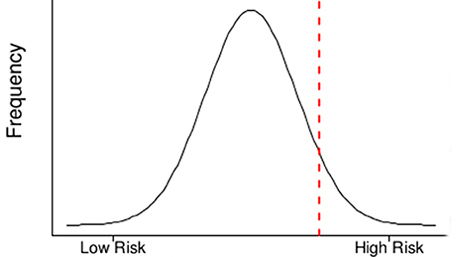
04/06/2020
Hot Topics of the Day are picked by experts to capture the latest information and publications on public health genomics and precision health for various diseases and health topics. Sources include published scientific literature, reviews, blogs and popular press articles.
Sign up MyPHGKB to receive the daily hot topic email alert.
Archived Hot Topics of the Day By Date
Coronavirus Disease 2019 in Children — United States, February 12–April 2, 2020
CDC MMWR, April 6, 2020

Assessment of Specimen Pooling to Conserve SARS CoV-2 Testing Resources
B Abdalhamid et al, MEDRXIV, April 6, 2020
Google Searches Can Help Us Find Emerging Covid-19 Outbreaks
NY Times, April 5, 2020
Forecasting the dynamics of COVID-19 Pandemic in Top 15 countries in April 2020: ARIMA Model with Machine Learning Approach
P Kumar e al, MEDRXIV, April 5, 2020
Systematic review and critical appraisal of prediction models for diagnosis and prognosis of COVID-19 infection
L Wynants, MEDRXIV, April 5, 2020
The mystery of why the coronavirus kills some young people
S Gupta, CNN, April 6, 2020
Quantifying the use of connected digital products in clinical research
C Marra et al, NPJ Digital Medicine, April 2020
Electronic health records and polygenic risk scores for predicting disease risk
R Li et al, Nat Rev Genetics, March 31, 2020
Personalized predictions of patient outcomes during and after hospitalization using artificial intelligence
CB Hilton, et al. NPJ Digital Medicine, April 2020
Moving towards personalized treatments of immune-related adverse events
K Esfahani et al, Nat Rev Clin Oncology, April 3, 2020
Disclaimer: Articles listed in Hot Topics of the Day are selected by Public Health Genomics Branch to provide current awareness of the scientific literature and news. Inclusion in the update does not necessarily represent the views of the Centers for Disease Control and Prevention nor does it imply endorsement of the article's methods or findings. CDC and DHHS assume no responsibility for the factual accuracy of the items presented. The selection, omission, or content of items does not imply any endorsement or other position taken by CDC or DHHS. Opinion, findings and conclusions expressed by the original authors of items included in the Clips, or persons quoted therein, are strictly their own and are in no way meant to represent the opinion or views of CDC or DHHS. References to publications, news sources, and non-CDC Websites are provided solely for informational purposes and do not imply endorsement by CDC or DHHS.
- Page last reviewed:Feb 1, 2024
- Page last updated:May 18, 2024
- Content source:






